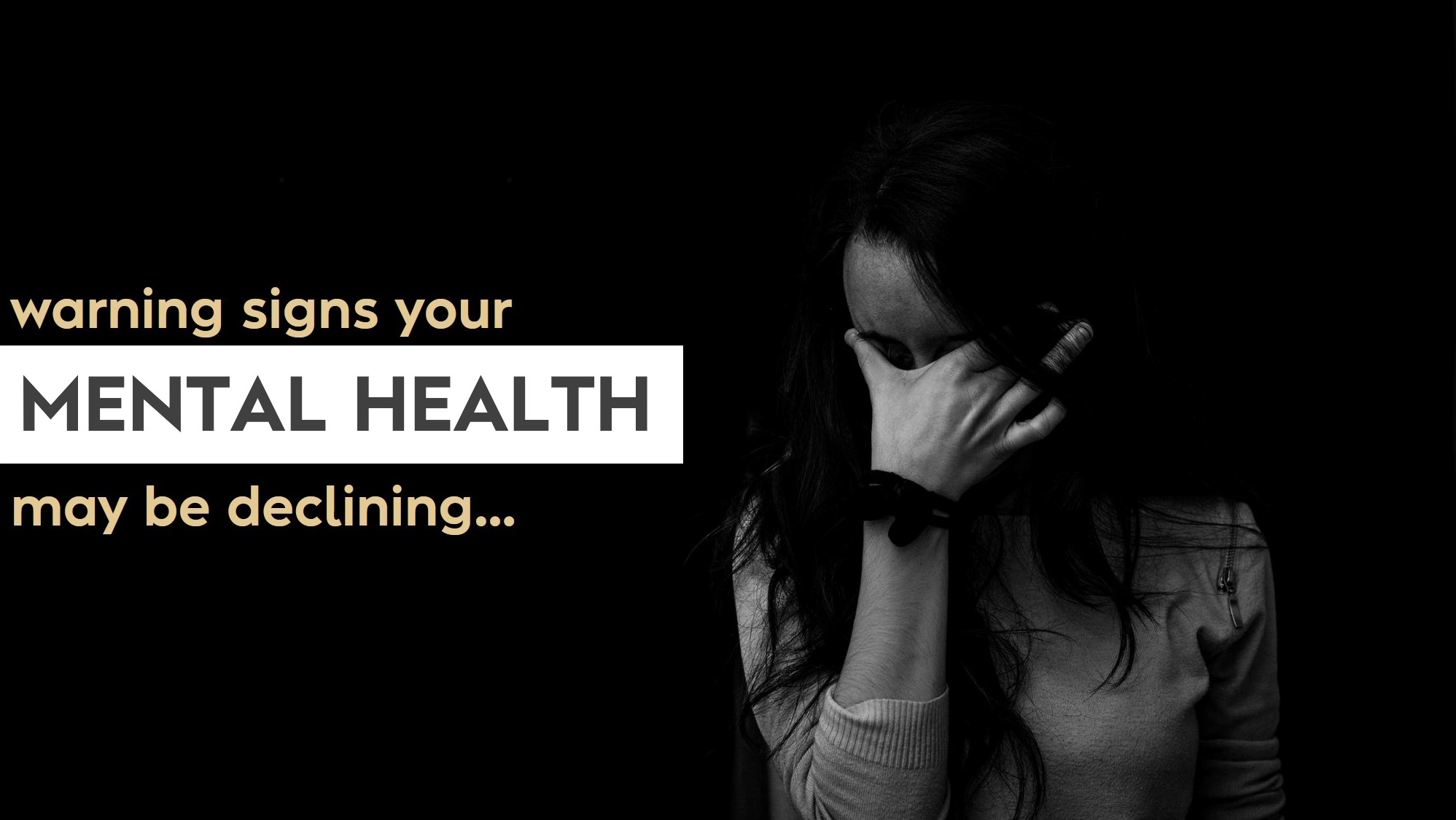Warning Signs Your Mental Health May Be Declining
Mental health is one of those areas that we all try to ignore. It makes people uncomfortable to either deal with their own or someone else’s mental health issues. Fortunately, the stigma surrounding mental health is slowly beginning to die. Like other illness, people are considering mental illness as a concern they should address to.
Learning about developing symptoms, or early warning signs, and taking action can help. Early intervention can help reduce the severity of an illness. It may even be possible to prevent a major mental illness.
Knowing how to spot the lows before they can happen can help getting the right treatment on time. For this it is crucial to understand the warning signs of when your mental health may be declining.
FEELING IRRITABLE
Getting annoyed at a time is completely fine, but consistent feelings of irritability can indicate a deeper problem. If you find yourself lashing out at those around you and being bothered by minor issues, it may be time to check on your overall mental health.
SHIFT IN SLEEPING HABITS
If you are experiencing constant sleep issues such as sleeping too much or sleeping too little, you may be suffering from depression or anxiety symptoms.
CONSTANTLY FEELING DEPRESSED
Feeling sad at a time is completely fine but it is something to worry about when you experience it most of the time. Feeling depressed can be observed in many ways such as loss of interest in activities you loved, low energy or feeling sad all the time. If you experience these feelings, it may be a sign that your mental health is suffering.
BEING ISOLATED FROM FAMILY AND FRIENDS
Taking time for yourself at a time is essential, but constantly isolating yourself from your family and friends surely indicates a problem. Being socially connected helps boost your mood and avoid being swallowed by your inner thoughts.
INABILITY TO FOCUS
If you notice that your level of concentration is less than your normal best, take note and be cautious. Those who struggle with poor mental health often find themselves doing poorly at school or work because they cannot concentrate on even the smallest of things.
SHIFT IN APPETITE
If you noticed a sudden weight gain or weight loss, your declining mental health can be the culprit. Either of these can be dangerous to your physical well-being, so getting help quickly is imperative for your health all the way around.
POOR PERSONAL HYGIENE
When you are suffering from mental health it is common to go on survival mode. Things such as hygiene are placed on standby because you most likely won’t have energy for them. Indications could be less frequent showering, brushing teeth, combing hair, etc.
ILLOGICAL THINKING
Unusual or exaggerated beliefs about personal powers to understand meanings or influence events; illogical or “magical” thinking typical of childhood in an adult.
PERSISTENT FEELINGS OF GUILT
“I’m a loser.”
“No one will ever love me.”
“Everything is my fault.”
All these thoughts can cause you unhealthy amounts of guilt resulting in declining of your mental health.
TAKEAWAY
Mental health is a big deal, often much bigger than we give it credit. Pay attention to your own needs, consult a psychiatrist and get help when necessary. Protecting your mental health is necessary for living a happy and healthy life, so be attentive and put your mental health at the top of your priority list.
Do not take this as a disability of intelligence. It’s not all in the mind. It is an illness and has nothing to do with how intelligent, educated, smart or productive the patient is, or has been.


